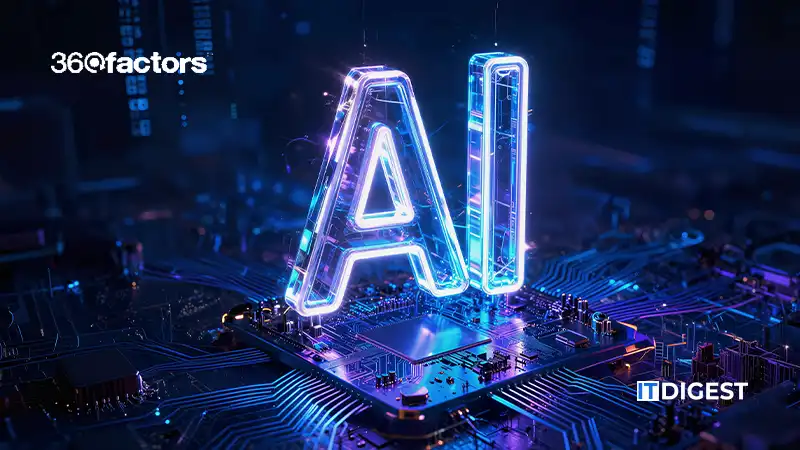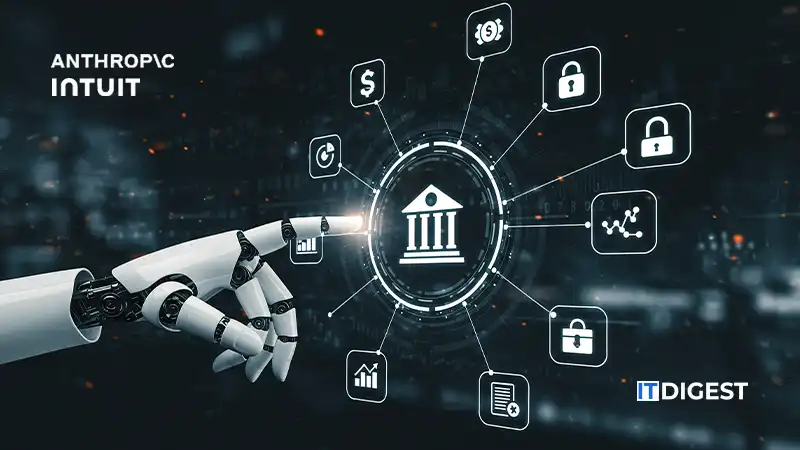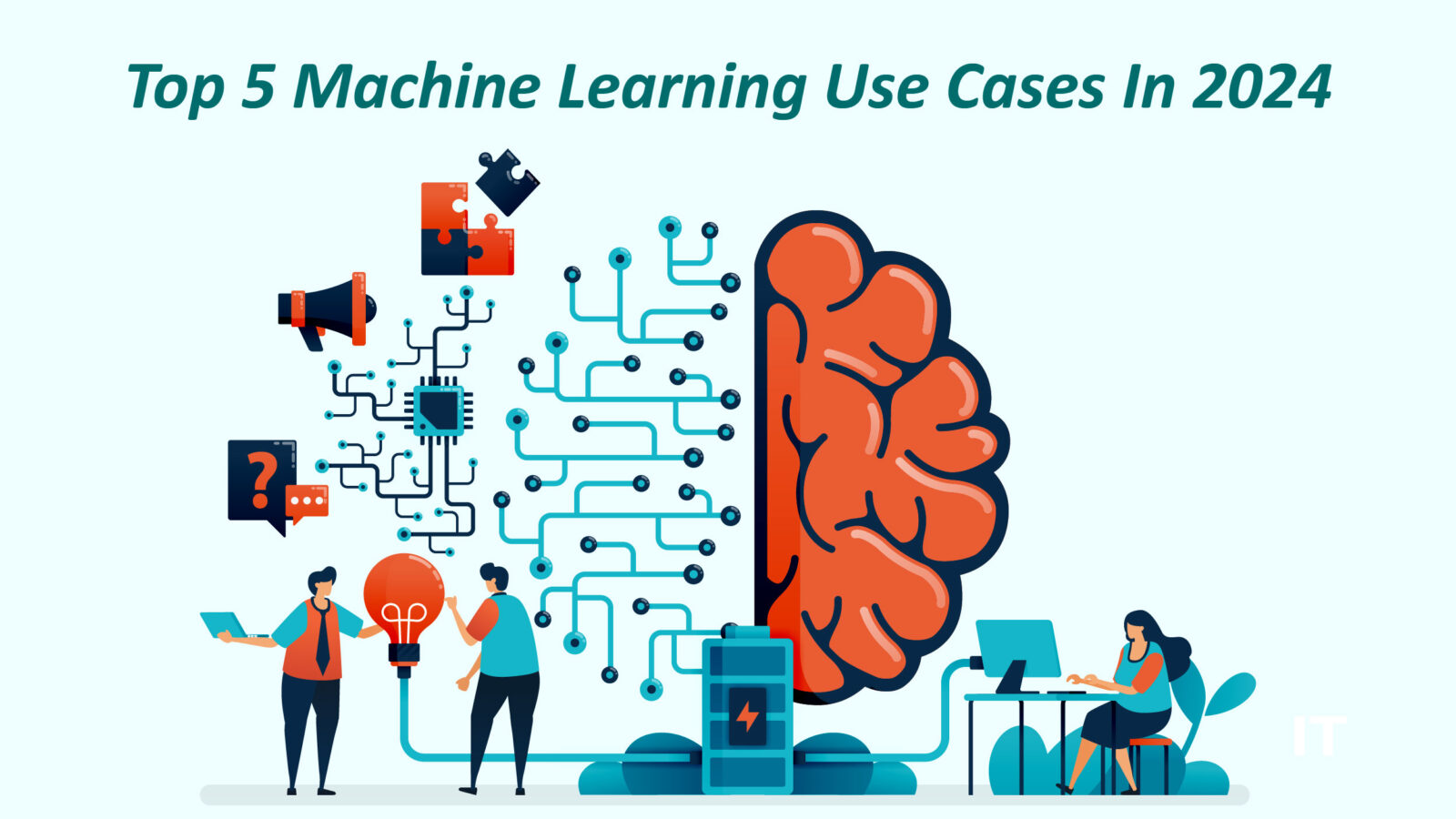Machine learning (ML), a subfield of artificial intelligence (AI) where machines learn from data and past experiences to recognize patterns and make predictions, currently stands as a $21 billion global industry, with projections indicating a growth to $528.10 billion by 2030. Here are real-world applications of machine learning use cases integrated into our daily lives.
What is Machine Learning?
Machine learning, a facet of artificial intelligence (AI), mimics human learning by utilizing data and algorithms. It involves training machines to autonomously learn and enhance accuracy over time without explicit programming. By identifying patterns and making predictions, machine learning empowers computers to execute tasks and decisions independently. With applications ranging from recommendation systems to self-driving cars, machine learning is a transformative force, solving intricate problems and leaving a substantial impact on how we live and work.
Examples of machine learning include recommendation systems in streaming services, fraud detection in finance, personalized medical treatments, autonomous vehicles’ decision-making, and natural language processing for voice assistants.
Applications of Machine Learning
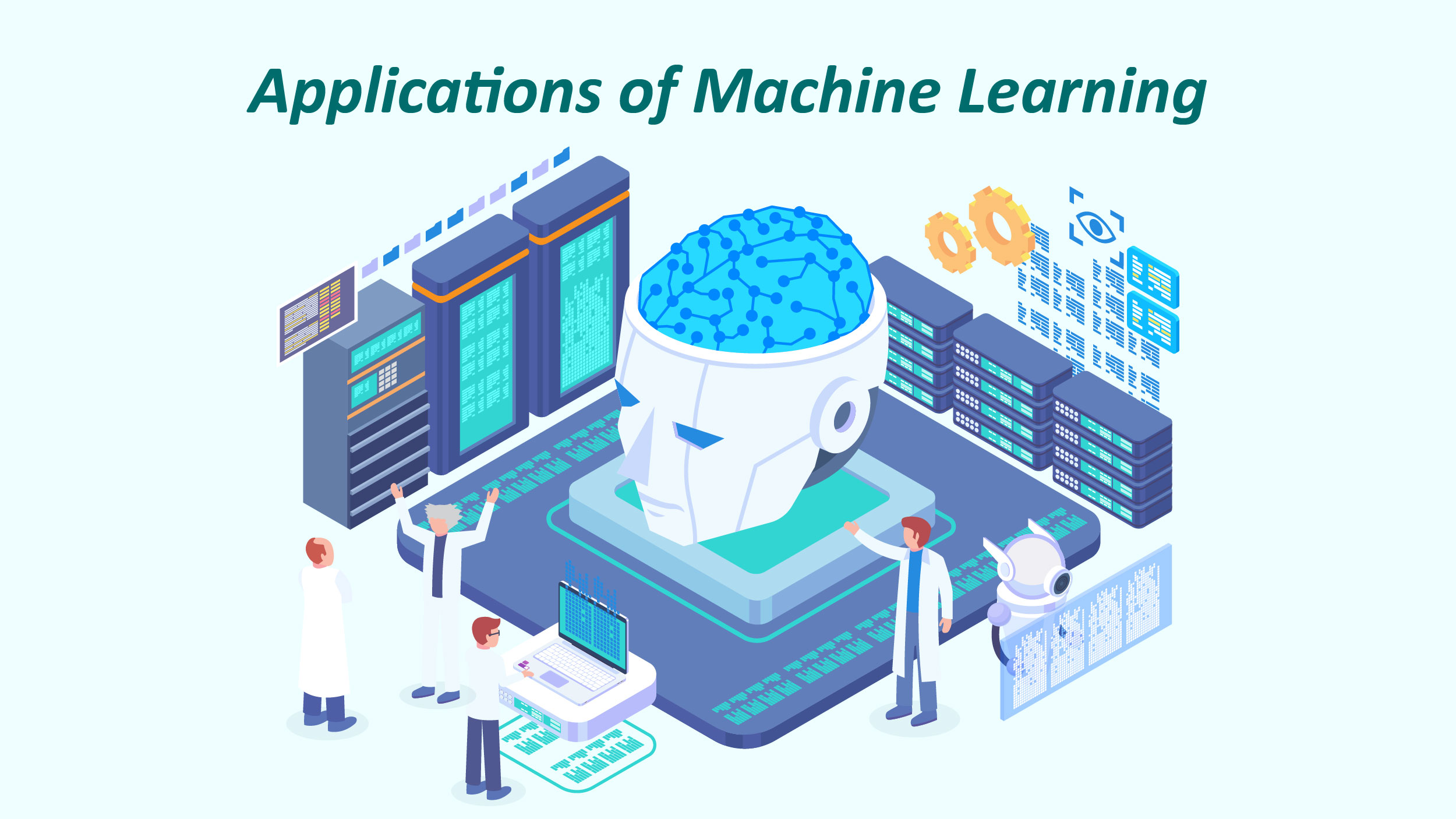 Machine learning applications are diverse and impactful, shaping various sectors. Below are a few of them:
Machine learning applications are diverse and impactful, shaping various sectors. Below are a few of them:
- Spam Detection: Email providers utilize machine learning algorithms to identify and filter spam messages from users’ inboxes.
- Social Media Features: Social media platforms employ machine learning to suggest friends, pages, and content based on users’ activities and preferences.
- Product Recommendations: E-commerce companies leverage machine learning for personalized product recommendations, enhancing the shopping experience.
- Image Recognition: Machine learning is applied in image recognition tasks, identifying objects, persons, and places in digital images.
- Self-Driving Cars: Machine learning plays a crucial role in enabling autonomous driving by analyzing sensor data and making real-time decisions.
- Medical Diagnosis: Healthcare utilizes machine learning models for tasks like breast cancer classification, Parkinson’s disease detection, and pneumonia diagnosis.
Top 5 Machine Learning Use Cases
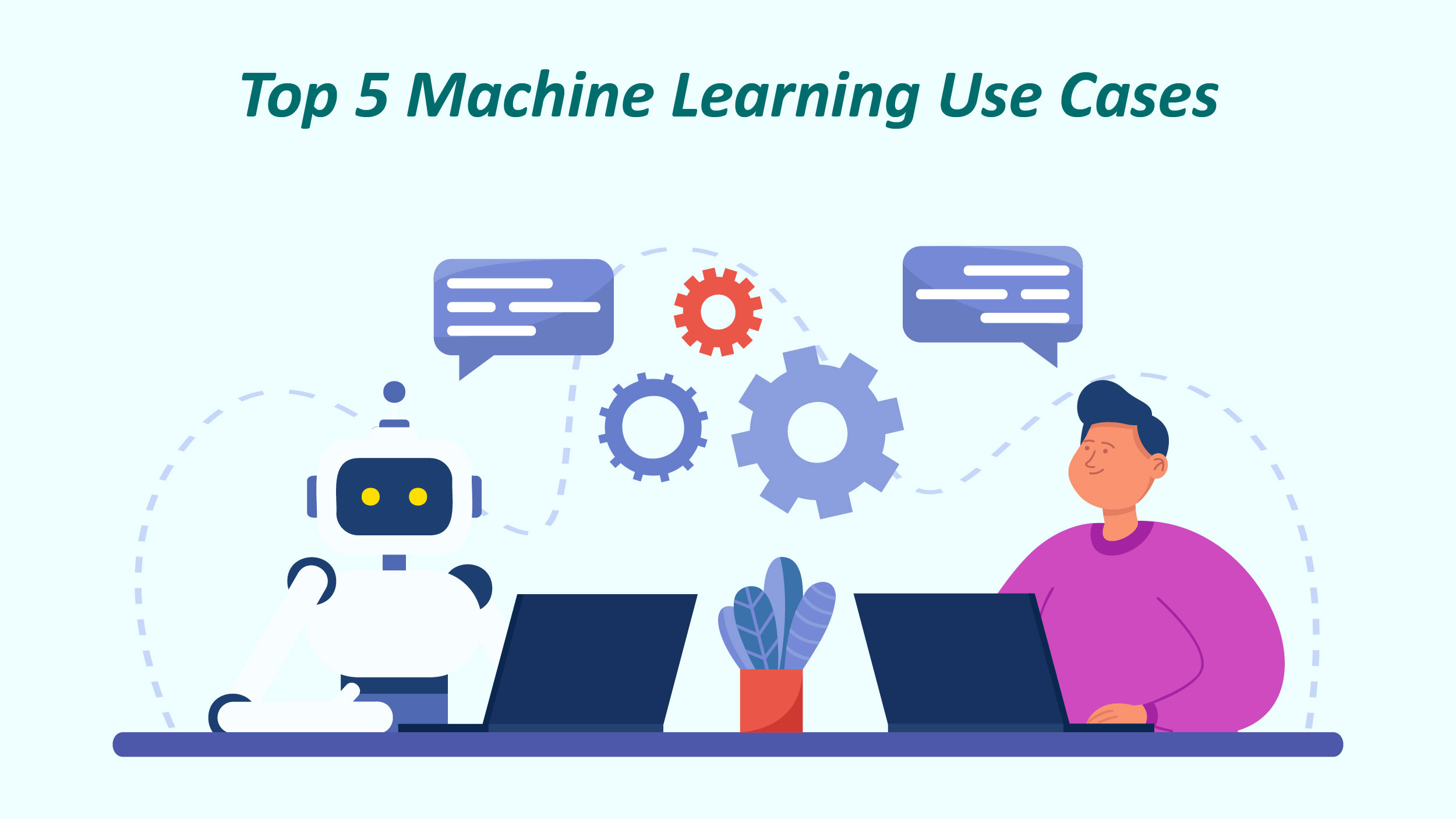 Now that we have a fair idea about what machine learning is, let’s understand the top 5 machine learning use cases.
Now that we have a fair idea about what machine learning is, let’s understand the top 5 machine learning use cases.
Machine Learning in Finance: Fraud Detection for Secure Transactions
In the realm of finance, machine learning proves invaluable, particularly in fraud detection. With banks and financial institutions spending $2.92 to recover every $1 lost to fraud, ML techniques play a crucial role in enhancing transactional security. Applications like credit card fraud detection, utilizing deep learning solutions in Python or R programming, predict and identify fraudulent behavior in real-time, generating alerts promptly. Notably, CitiBank employs Feezai’s anomaly detection system across 90 countries, utilizing AI and ML to bolster payment monitoring and security, effectively mitigating fraud risks.
Machine Learning Use Cases in Healthcare
Machine learning in healthcare has revolutionized pattern recognition, particularly in radiology imaging, where AI-enabled computer vision is utilized for mammogram analysis and early lung cancer screening. Addressing the 40% miss rate in breast cancer detection, ML improves diagnostic accuracy. ML is also applied to classify tumors, identify subtle bone fractures, and detect neurological disorders. In inpatient care, ML examines historical records to create personalized treatment plans. In genetic research, ML identifies genetic markers, enabling personalized medication recommendations. Furthermore, ML accelerates drug discovery. For instance, Pfizer utilizes IBM Watson to select optimal candidates for clinical trials. Meanwhile, Geisinger Health System uses AI and ML to predict sepsis risk, enhancing patient prioritization and reducing mortality rates.
Machine Learning and Smartphones
ML plays a significant role in our smartphones, influencing key features we use daily. Facial recognition, governed by ML algorithms, unlocks our phones, while voice assistants like Siri, Alexa, Google Assistant, and Cortana use ML and Natural Language Processing (NLP) to understand and respond to our commands.
Also Read: Spatial Computing: Everything You Need to Know About this Next Frontier in Digital World
Moreover, machine learning use cases in smartphones also extend to battery optimization, where ML algorithms learn a user’s usage patterns to adjust power consumption accordingly. It analyzes and improves photos through image classifiers, identifies objects or faces in images, and even employs artificial neural networks to enhance or extend photos by predicting what lies beyond their borders.
Revolutionizing Transportation with Machine Learning
Machine learning (ML) plays a pivotal role in modern transportation. Google Maps utilizes ML algorithms to assess current traffic conditions, determine optimal routes, suggest nearby places to explore, and estimate arrival times.
Ride-sharing giants like Uber and Lyft leverage ML for tasks such as matching riders and drivers, pricing, traffic analysis, and route optimization based on real-time conditions, similar to Google Maps.
Self-driving cars are empowered by computer vision and are driven by unsupervised ML algorithms. These algorithms enable cars to gather data from cameras and sensors, comprehend their surroundings, and make real-time decisions to navigate effectively. Machine learning use cases in the transportation sector are steering the future toward efficiency and safety.
Email Monitoring and Cybersecurity
Emails, crucial for personal and professional communication, are vulnerable to cybersecurity threats like phishing. Machine learning (ML) techniques, particularly Natural Language Processing, play a pivotal role in real-time email monitoring to detect and prevent attacks. Anomaly detection using machine learning use cases is effective in identifying suspicious activities.
Tessian, a London-based software company, exemplifies this approach by employing ML-based email monitoring software. This technology combines NLP and anomaly detection to proactively prevent phishing attacks, information breaches, and malware incidents, ensuring robust cybersecurity for email communications.
Final Verdict
Machine learning use cases across industries showcase its transformative impact. From enhancing cybersecurity and optimizing financial processes to revolutionizing healthcare diagnostics and powering self-driving cars, the versatility of machine learning continues to reshape and elevate various facets of our technological landscape.









